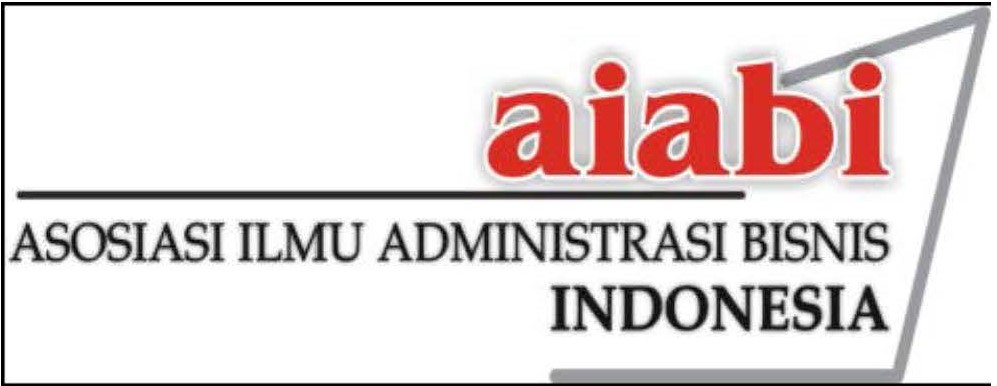PRAKTEK MODEL PERILAKU NIAT BELI KONSUMEN RAMAH LINGKUNGAN DARI PERSPEKTIF TEORI PERILAKU TERENCANA
Abstrak
The phenomenon in this study is consumer behavior in purchasing environmentally friendly packaged food in Depok City. Depok was chosen as the research location because Depok is a buffer city for Jakarta. The purpose of the study is to determine the behavior of environmentally friendly consumers in small culinary-based businesses so that they can develop policies to overcome environmental problems by utilizing the local wisdom of Depok City. The approach used in this study is a quantitative approach using structural equation modeling. The population in this study is the consumer of culinary-based small businesses whose numbers cannot be known. Samples were taken as many as 120 consumers who were determined by the purposive sampling technique. The results of data analysis concluded that subjective norms have a strong and significant influence on the purchase intention of environmentally friendly packaged food. In addition, the variables of attitude, subjective norm, and perceived behavioral control have an effect of 78% on the intention to buy environmentally friendly packaged food in Depok City. The subjective norm variable has the strongest and most significant influence on the intention to buy food in environmentally friendly packaging in Depok City. It is hoped that the written suggestions can provide input to the Depok city government to make Depok a Zero Waste city.
Fenomena masalah dalam penelitian ini yaitu perilaku konsumen dalam niat beli makanan berkemasan ramah lingkungan di Kota Depok. Tujuan penelitian yaitu untuk mengetahui perilaku konsumen ramah lingkungan pada usaha kecil berbasis kuliner sehingga dapat mengembangkan kebijakan untuk mengatasi permasalahan lingkungan. Pendekatan yang digunakan pada penelitian ini yaitu pendekatan kuantitatif dengan menggunakan structural equation modelling. Populasi pada penelitian ini yaitu konsumen usaha kecil berbasis kuliner yang tidak dapat diketahui jumlahnya. Sampel diambil sebanyak 120 konsumen yang ditentukan dengan teknik purposive sampling. Hasil analisis data menyimpulkan bahwa subjective norm memiliki pengaruh yang kuat dan signifikan terhadap niat beli makanan berkemasan ramah lingkungan. Selain itu variabel attitude, subjective norm dan perceived behavioral control berpengaruh sebesar 78% terhadap niat beli makanan berkemasan ramah lingkungan di Kota Depok. Variabel subjective norm memiliki pengaruh yang paling kuat dan signifikan terhadakanp niat beli makanan dalam kemasan ramah lingkungan di Kota Depok. Diharapkan saran yang ditulis dapat memberikan masukan kepada pemerintah kota Depok untuk menjadikan kota Depok sebagai kota yang Zero Waste.
Kata Kunci
Teks Lengkap:
PDFReferensi
Ajzen, I. (2002). Perceived behavioral control, self-efficacy, locus of control, and the theory of planned behavior. In Journal of Applied Social Psychology (Vol. 32, Issue 4). https://doi.org/10.1111/j.1559-1816.2002.tb00236.x
Anuraga, G., Sulistiyawan, E., & Munadhiroh, S. (2017). Structural Equation Modeling – Partial Least Square Untuk Pemodelan Indeks Pembangunan Kesehatan Masyarakat (Ipkm) Di Jawa Timur. Seminar Nasional Matematika Dan Aplikasinya, 257.
Askadilla, W. L., & Krisjanti, M. N. (2017). Understanding Indonesian Green Consumer Behaviour on Cosmetics Products: Theory of Planned Behaviour Model. Polish Journal of Management Studies, 15(2), 7–15. https://doi.org/10.17512/pjms.2017.15.2.01
Atikbay, T., & Davut, S. (2019). an Analysis on Green Consumer Purchasing Decision. Journal of International Social Research, 12(65), 958–971. https://doi.org/10.17719/jisr.2019.3507
Bashir, S., Khwaja, M. G., Turi, J. A., & Toheed, H. (2019). Extension of planned behavioral theory to consumer behaviors in green hotel. Heliyon, 5(12), e02974. https://doi.org/10.1016/j.heliyon.2019.e02974
Booi Chen, T., & Teck Chai, L. (2010). Attitude towards the Environment and Green Products: Consumers’ Perspective. Management Science and Engineering, 4(2), 27–39. www.cscanada.net%5Cnwww.cscanada.og
Cherrier, H., Black, I. R., & Lee, M. (2011). Intentional non‐consumption for sustainability: Consumer resistance and/or anti‐consumption? European Journal of Marketing.
Danayanti, A. C., Astuti, M., & Nobelson. (2020). Orientasi Pasar dan Inovasi Pada UMKM Kuliner di Margonda: Implikasinya Pada Kinerja Pemasaran. 676–689.
Emekci, S. (2019). Green consumption behaviours of consumers within the scope of TPB. Journal of Consumer Marketing, 36(3), 410–417. https://doi.org/10.1108/JCM-05-2018-2694
Ghozali, I. (2014). Structural Equation Modelling: Metode Alternatif dengan Partial Least Square (PLS) Edisi 4. Universitas Diponegoro.
Groening, C., Sarkis, J., & Zhu, Q. (2018). Green marketing consumer-level theory review: A compendium of applied theories and further research directions. J. Clean. Prod., 172, 1848–1866.
Hair, J. F., Black, W. C., Babin, B. J., & Anderson, R. E. (2018). Multivariate Data Analysis. https://doi.org/10.1002/9781119409137.ch4
Hartono, Maulina, A., Noviandari, Sukirno, & Sholeh, M. (2021). Green Business UMKM Di Kota Depok. Jurnal Komunitas : Jurnal Pengabdian Kepada Masyarakat. https://doi.org/10.31334/jks.v3i2.1268
Jayani, D. H. (2021). 6 Produk Ramah Lingkungan yang Paling Banyak Dibeli Masyarakat. Databoks.Katadata.Co.Id. https://databoks.katadata.co.id/datapublish/2021/08/24/6-produk-ramah-lingkungan-yang-paling-banyak-dibeli-masyarakat
Kotler, P., & Armstrong, G. (2018). Principles of Marketing 17th Global Edition. In Pearson Education Limited.
Lazer, W. (1969). Marketing’s Changing Social Relationships. 33, 3–9.
Liobikiene, G., Mandravickaite, J., & Bernatoniene, J. (2016). Theory of planned behavior approach to understand the green purchasing behavior in the EU: A cross-cultural study. Ecological Economics, 125, 38–46. https://doi.org/10.1016/j.ecolecon.2016.02.008
Ogiemwonyi, O., Harun, A. Bin, Alam, M. N., Karim, A. M., Tabash, M. I., Hossain, M. I., Aziz, S., Abbasi, B. A., & Ojuolape, M. A. (2020). Green product as a means of expressing green behaviour: A cross-cultural empirical evidence from Malaysia and Nigeria. Environmental Technology and Innovation, 20, 101055. https://doi.org/10.1016/j.eti.2020.101055
Paul, J., Modi, A., & Patel, J. (2016). Predicting green product consumption using theory of planned behavior and reasoned action. Journal of Retailing and Consumer Services, 29, 123–134. https://doi.org/10.1016/j.jretconser.2015.11.006
Sheng, G. ., Ge, W. D., & Tang. (2018). The impact of consumer’s environmental responsibility on green product purchase behavior—A case of energy saving household appliance. Forum Stat. Inf, 33, 114–120.
Sugiyono. (2017). Metode Penelitian Bisnis (Pendekatan Kuantitatif, Kualitatif, Kombinasi dan R&D). In Metodelogi Penelitian.
Taufique, K. M. R., & Vaithianathan, S. (2018). A fresh look at understanding Green consumer behavior among young urban Indian consumers through the lens of Theory of Planned Behavior. Journal of Cleaner Production, 183, 46–55. https://doi.org/10.1016/j.jclepro.2018.02.097
Tornikoski, E., & Maalaoui, A. (2019). Critical reflections – The Theory of Planned Behaviour: An interview with Icek Ajzen with implications for entrepreneurship research. International Small Business Journal: Researching Entrepreneurship, 37(5), 536–550. https://doi.org/10.1177/0266242619829681
Tseng, W., & Chang, C. (2015). A Study of Consumers ’ Organic Products Buying Behavior in Taiwan - Ecologically Conscious Consumer Behavior as A Segmentation Variable. International Proceedings of Management and Economy, 84, 43–48. http://www.ipedr.com/vol84/006-D00034.pdf
UMKM, R. (2022). Rudi Murodi Terpilih Jadi Ketua Asosiasi UMKM Kota Depok Periode 2022-2025. https://depokrayanews.com/rudi-murodi-terpilih-jadi-ketua-asosiasi-umkm-kota-depok-periode-2022-2025/
Wahyudin, G. D., & Afriansyah, A. (2020). Penanggulangan Pencemaran Sampah Plastik Di Laut Berdasarkan Hukum Internasional. Jurnal IUS Kajian Hukum Dan Keadilan, 8(3).
Wu, C., Liang, S., Wu, W., & Hong, Y.(2021). Practicing green residence business model based on TPB perspective. Sustainability (Switzerland), 13(13), 1–11. https://doi.org/10.3390/su13137379
Yadav, R., & Pathak, G. S. (2017). Determinants of Consumers’ Green Purchase Behavior in a Developing Nation: Applying and Extending the Theory of Planned Behavior. Ecological Economics, 134, 114–122. https://doi.org/10.1016/j.ecolecon.2016.12.019
Zhang, X., & Dong, F. (2020). Why do consumers make green purchase decisions? Insights from a systematic review. International Journal of Environmental Research and Public Health, 17(18), 1–25. https://doi.org/10.3390/ijerph17186607
Zhao, H. H., Gao, Q., Wu, Y. P., Wang, Y., & Zhu, X. D. (2014). What affects green consumer behavior in China? A case study from Qingdao. Journal of Cleaner Production, 63, 143–151. https://doi.org/10.1016/j.jclepro.2013.05.021
DOI: https://doi.org/10.24198/adbispreneur.v7i1.36239
Refbacks
- Saat ini tidak ada refbacks.









